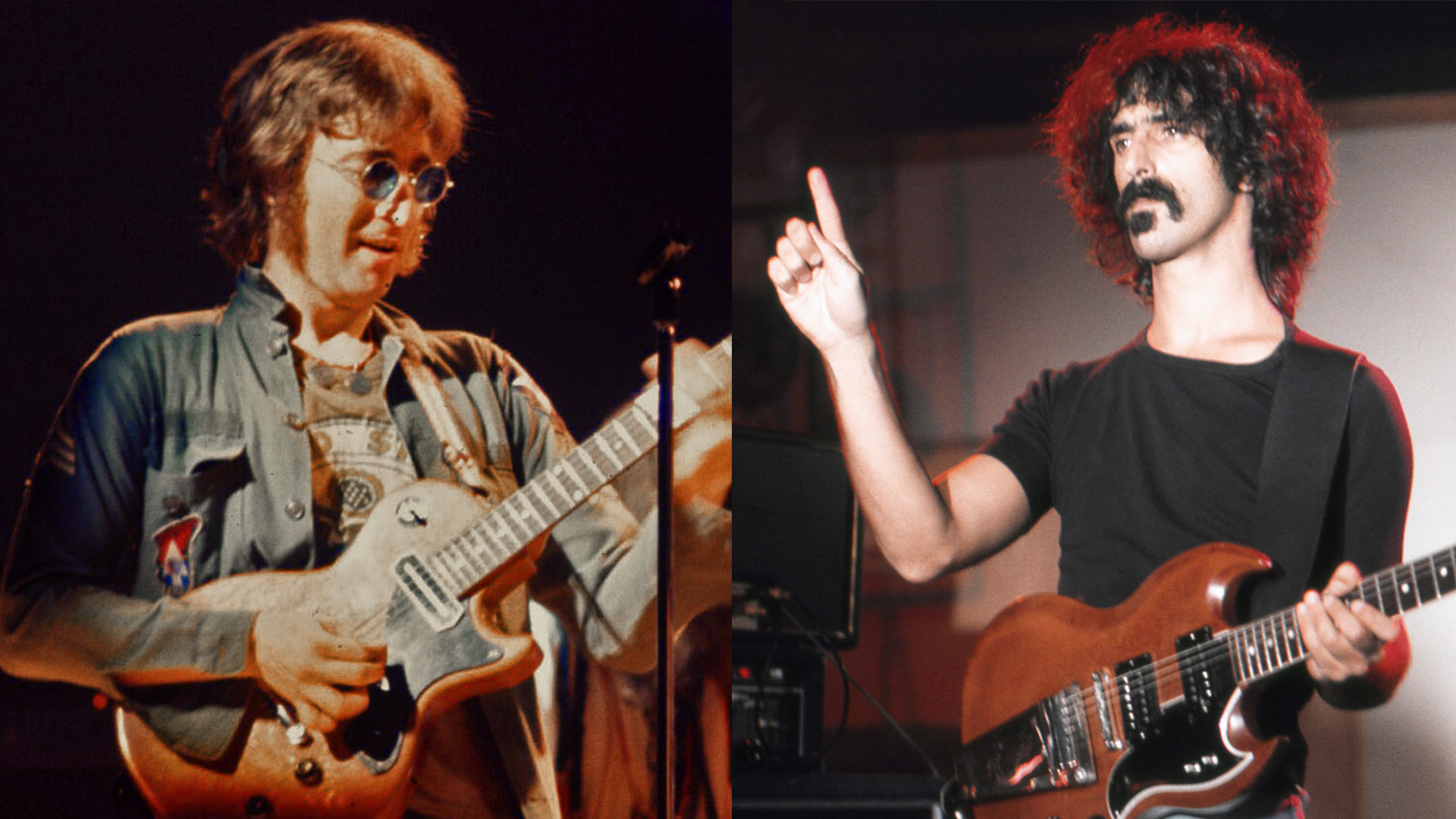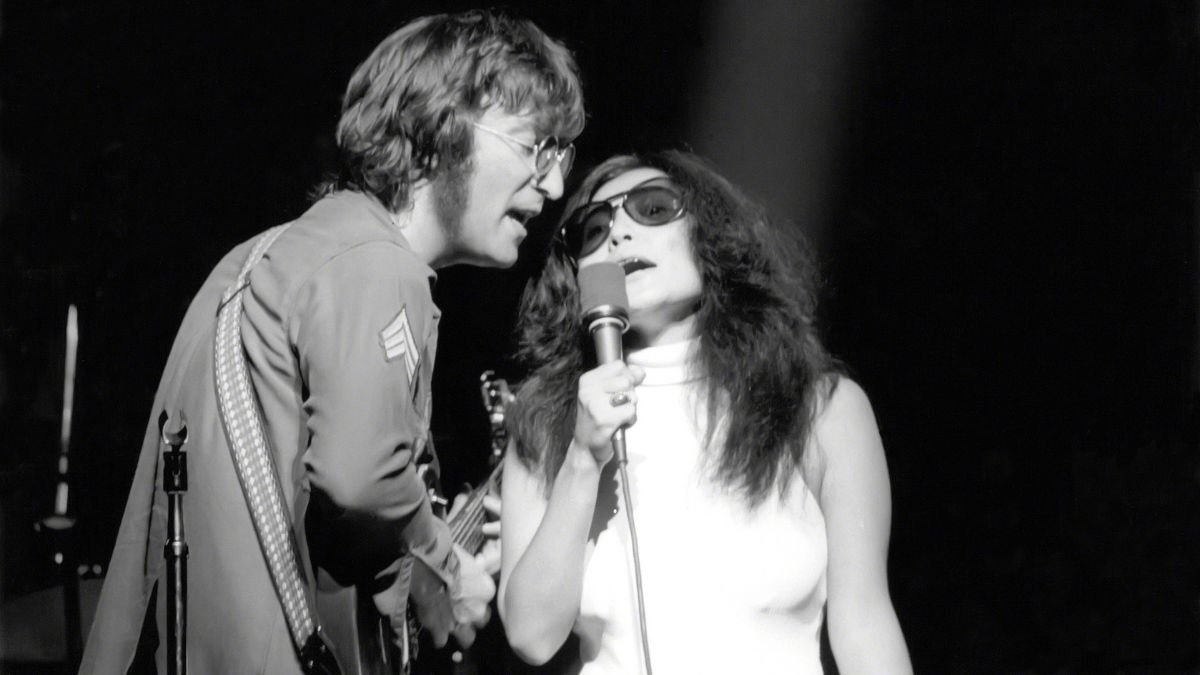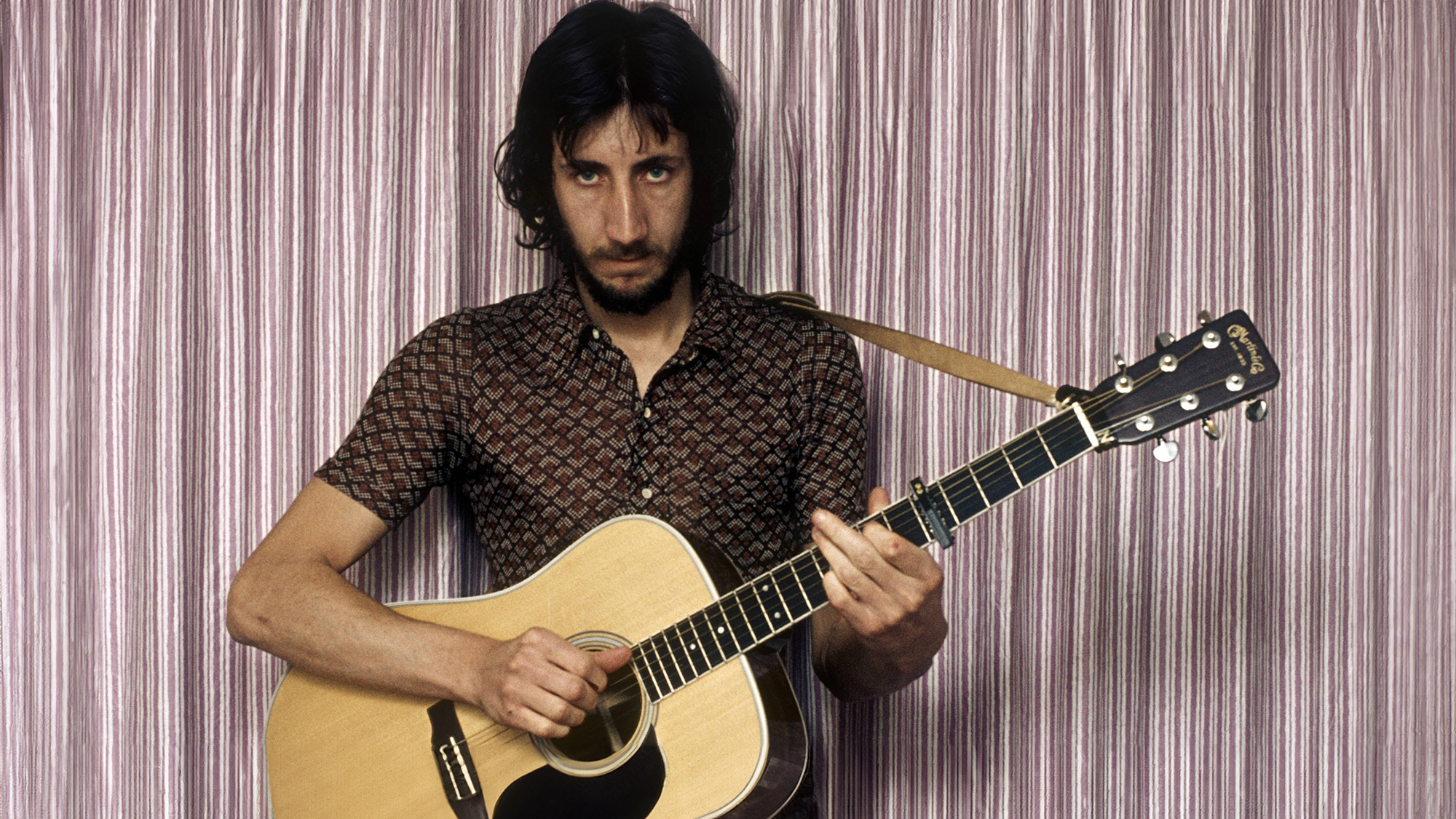“They gave themselves credit, stuck it on an album and never paid me. It was a little bit disappointing.” John Lennon looked to Frank Zappa for career guidance. Zappa said the former Beatles guitarist got considerably more
Zappa accused Lennon of repackaging his song “King Kong” as if he and Yoko Ono had written it themselves

In the years after the Beatles broke up, John Lennon found a kindred spirit in an unlikely musician: Frank Zappa.
The iconoclastic composer and guitarist was an odd choice for Lennon. Zappa's music was avant garde and frequently irreverent. Lennon, on the other hand, was a pop songwriter. At the time he and Zappa met in 1971, he was on the verge of releasing his heartfelt ode to peace, "Imagine."
That said, Lennon had his experimental side too, as did his wife and musical partner, Yoko Ono. But the former Beatle wasn't just inspired by Zappa's music — he also liked Zappa's attitude when it came to leadership of his band, the Mothers of Invention.
As the former Fab revealed in his 1970 interview with Rolling Stone, he was unhappy dealing with artistic differences in the Beatles and, especially, with how he believed he was portrayed in the media alongside Paul McCartney and George Harrison.
“I’m sick of reading things that say Paul is the musician and George is the philosopher. I wonder where I fit in, what was my contribution?” he mused.
“I’d sooner be Zappa and say, ‘Listen, you fuckers, this is what I did, and I don’t care whether you like my attitude saying it. That’s what I am, you know, I’m a fucking artist, and I’m not a fucking PR agent or the product of some other person’s imagination.
"Whether you’re the public or whatever, I’m standing by my work," he added, "whereas before I would not stand by it.”
All the latest guitar news, interviews, lessons, reviews, deals and more, direct to your inbox!

It didn't take long for Lennon to meet his new hero. It happened on June 6, 1971, in an unusual introduction that Zappa recalled on The Frank Zappa Interview Picture Disk, released in 1984.
“A journalist in New York City woke me up, knocked on the door, and is standing there with a tape recorder and goes, ‘Frank, I’d like to introduce you to John Lennon,’ waiting for me to gasp and fall on the floor,” he said.
“I said, ‘Well, Okay. Come on in.’ And we sat around and talked, and I think the first thing he said to me was, ‘You’re not as ugly as I thought you would be.’ I thought he had a pretty good sense of humor, so I invited him to come down and jam with us at the Fillmore East.”
Zappa and the Mothers of Invention were engaged in a two-night stand at the famed New York CIty venue for June 5 and 6. The shows were being recorded and would be released that August as Fillmore East – June 1971.
Lennon and Ono came out for the encore that second night and played for half an hour with the group. The couple were well-suited to Zappa’s idiosyncratic musical approach, and the show was a success.
Although Zappa didn't include the Lennon and Ono songs on the initial release of Fillmore East – June 1971, the recordings appeared roughly one year later on the couple's 1972 double-album set, Some Time in New York City.
A sprawling album containing songs inspired by the couple's growing activism for peace and justice, Some Time in New York City was a divisive effort among Lennon's fans. The politically themed content on the first disc was at times blunt and unvarnished, while the second disc showed the couple's more avant-garde side via recordings from a 1969 UNICEF charity concert in London (featuring George Harrison) and the Fillmore East concert.
But the fans' disappointment was nothing compared to what Zappa must have felt when he discovered Lennon and Ono had remixed one of the Fillmore East tracks and claimed it as their own.
“There’s a song that I wrote called ‘King Kong’ which we played that night," Zappa explained. "And I don’t know whether it was Yoko’s idea or John’s idea, but they changed the name of the song to ‘Jamrag.’
“[They] gave themselves writing and publishing credit on it, stuck it on an album, and never paid me. It was obviously not a jam session song: It’s got a melody, it’s got a bass line; it’s obviously an organized song. [It was a] little bit disappointing.”
In remixing the track, Lennon and Ono removed the vocals sung by Mothers members — and former Turtles — Mark Volman and Howard Kaylan. Only Ono's wailing vocals were retained.
“After they had sat in with us, an arrangement was made that we would both have access to the tapes,” Zappa explained. “He wanted to release it with his mix, and I had the right to release it with my mix, so that’s how that one section came out.”
Because Zappa was legally prevented from releasing his version of the Lennon-Ono jam until 1992, his mix of the recording didn't come out until it was featured on Playground Psychotics, one of the last releases before his death the following year. The set was also included on the 2022 expanded edition of Fillmore East – June 1971.
The first thing he said to me was, ‘You’re not as ugly as I thought you would be.’ I thought he had a pretty good sense of humor.”
— Frank Zappa
Although Lennon and Zappa had connected creatively, their relationship didn't last. Lennon was clearly eager to continue collaborating. It was around this same time that he asked Eric Clapton to form a new band with him that would pull him out of his drug troubles and “bring back the balls in rock ‘n’ roll.”
The former Beatle would continue to collaborate — and with more mutually satisfying results — in the coming years. In 1974, he and Elton John joined together for the recording of Lennon's hit song "Whatever Gets You Thru the Night." Months later, in January 1975, Lennon and David Bowie would join forces to write and record the hit track "Fame" and cut a cover of Lennon's Beatles-era song "Across the Universe," both from Bowie's Young Americans album.
In Beatles news, a new Anthology release has been announced, with Paul McCartney claiming the first of the bunch, recorded in 1995, saw the studio sessions haunted by John Lennon’s ghost.
A freelance writer with a penchant for music that gets weird, Phil is a regular contributor to Prog, Guitar World, and Total Guitar magazines and is especially keen on shining a light on unknown artists. Outside of the journalism realm, you can find him writing angular riffs in progressive metal band, Prognosis, in which he slings an 8-string Strandberg Boden Original, churning that low string through a variety of tunings. He's also a published author and is currently penning his debut novel which chucks fantasy, mythology and humanity into a great big melting pot.


